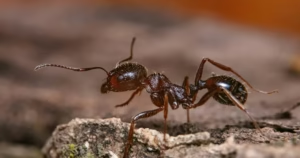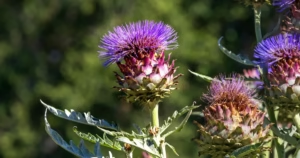So you’re chilling in your garden, watching bees zip around like tiny superheroes, and you start wondering, Do bees sleep? Like, do they ever just kick back and take a nap?” It’s one of those questions that sounds simple but opens up a whole fascinating world about these incredible critters. And honestly, the answer might surprise you more than seeing a Unicorn on your lawn.
I’m gonna break it all down for you in a way that feels like we’re just texting about bees over coffee. We’ll explore whether bees catch some Z’s, how they rest, what science says, and why it matters. Plus, I’ll toss in some cool bee facts to keep it fun. Ready to get buzzing? Let’s go!
Do bees sleep?The Short Answer
ChatGPT said:
Alright, straight up: yes, bees do sleep! Well, kinda. They don’t curl up in little bee beds or nap like humans do. Instead, they have unique sleep patterns with a special resting state or “sleep-like behavior.” Bees need to rest to recharge their wings and brains. It’s like how humans need a good night’s sleep to function well. Bees don’t clock out for eight hours. Rather, they take brief pauses throughout their hectic day—power naps on steroids.
So, how do we know bees rest? Researchers have closely observed bees’ sleep patterns, noting similarities to how humans bees follow rest cycles. They saw bees pause and become very still, wings tucked, sometimes perching on grass stalks as if zoning out. These moments allow their wings rest and conserve energy, keeping them ready for action. Bees need this rest to pollinate, gather nectar, and build hives well. Let’s dig into the details, because the way bees rest is even cooler than you think!
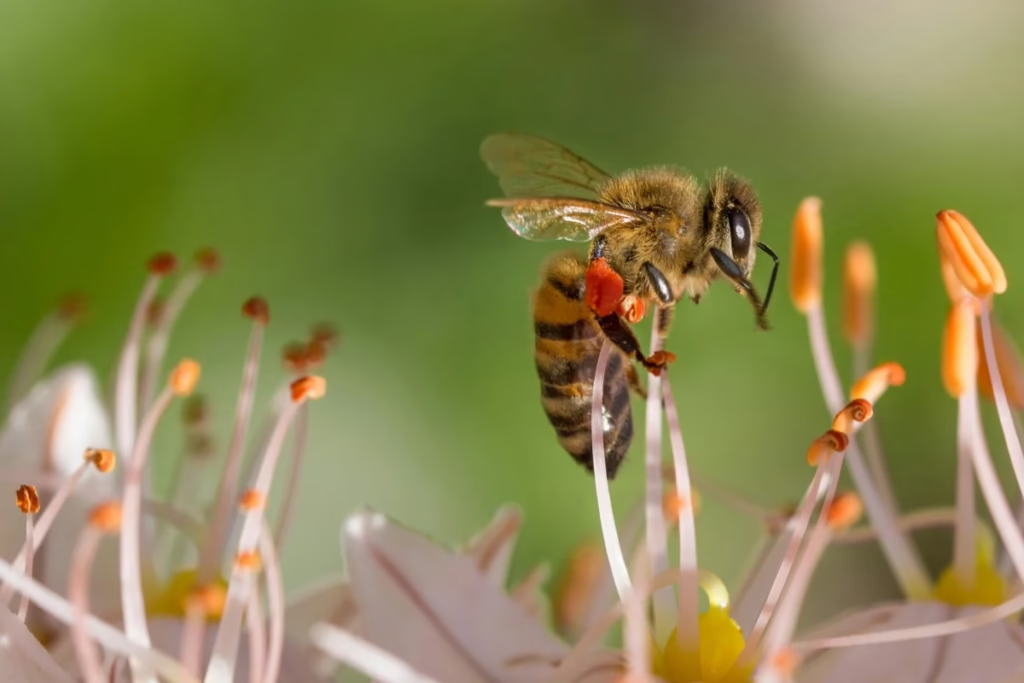
What Does “Bee Sleep” Look Like?
Okay, picture a bee after a long day of buzzing from flower to flower. It’s not gonna crawl into a mini sleeping bag, but it does something called a dive rest or goes into a quiescent state. Here’s what that looks like:
- Dive Resting: Sometimes, bees just plop down on a flower or a leaf and stay super still for a bit. Their little legs tuck in, their antennae droop, and they look like they’re just vibing. It’s like they’re saying, “Yo, I need a sec.” These rests can last a few minutes to a couple of hours, depending on how wiped they are.
- Hanging Out in the Hive: Back at the hive, bees might chill in a quiet corner or on a honeycomb. Younger bees work inside the hive. They clean and feed larvae. Often, they take breaks between these tasks. Older bees, the ones out foraging, might rest outside or in the hive when they’re not on duty.
- Antennae Action: Scientists have noticed that when bees are in this rest mode, their antennae stop wiggling and go still. It’s a big clue they’re in a low-energy state, kinda like when you’re so tired you just stare into space.
Fun fact: Bees have been observed dozing off on flowers at night by some researchers. This often happens when they get caught outside after sunset. They’ll grip onto a petal and just hang there until morning. How cute is that?
Why Do Bees Need to Rest?
Bees are the true workaholics of the animal world. They pollinate plants, collect nectar, make honey, and keep their hive running smoothly. All that hustle takes a ton of energy, so rest is crucial. Here’s why:
- Energy Conservation: Flying is hard work! A bee’s wings beat like 230 times per second, and they can fly up to 15 miles per hour. Resting helps them save energy for the next day’s grind.
- Brain Power: Bees have tiny brains, but they’re super smart. They remember where flowers are. They use the sun to find their way. They even dance to communicate, like with the waggle dance. Rest helps their brains process all that info and stay sharp.
- Longevity: A worker bee’s life is short—about 6 weeks in the summer. Resting helps them avoid burning out too fast, so they can keep contributing to the hive.
Without rest, bees would be like us pulling all-nighters daily. They’d be cranky, messy, and less productive. Their version of sleep keeps them buzzing at peak performance.
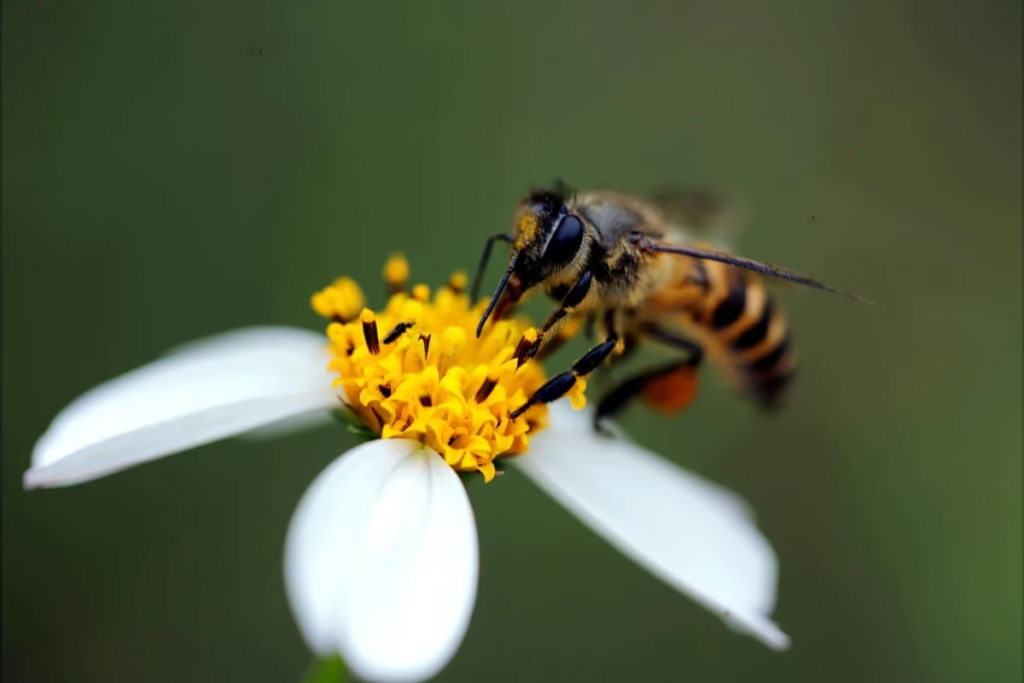
What Does Science Say About Bee Sleep?
Scientists have studied honey bees for decades. They are especially interested in their sleep behaviors. In the 1980s, researcher Walter Kaiser led one of the first studies on honey bees’ sleep patterns. He noticed that bees sometimes sat still with droopy antennae. He called this “rest phases.” These phases were key. Kaiser showed that bees need this downtime to work well in their busy lives. This was one of the first clear signs that bees, like humans, have sleep-wake cycles that are vital for their health.
Recently, new technology let scientists watch bees in glass-walled hives for longer times. These studies showed that bees take rest breaks. They follow natural day and night cycles. Bees usually rest more at night, similar to how humans sleep. However, their sleep patterns fit their ecological needs. Artificial light can disrupt natural rhythms. This confuses bees and affects their ability to rest.
When researchers kept bees awake, the bees got confused. They lost key navigation skills for foraging. Sleep is vital for bees. It helps them resting their wings and brains. This allows them to pollinate flowers, collect nectar, and take care of their hives. Honey bees, like us, use their internal clocks to balance activity and rest with day and night.
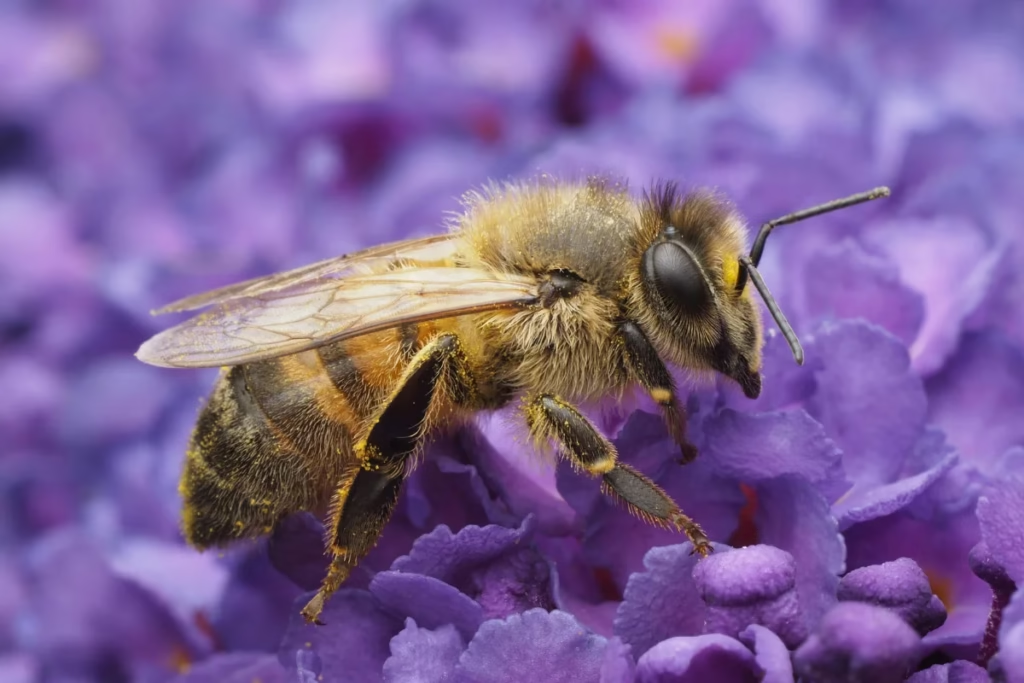
Do All Bees Rest the Same Way?
Not quite! Different types of bees have different vibes when it comes to resting. Let’s break it down:
- Honeybees: These are the social butterflies (er, bees) of the bee world. They live in hives with thousands of buddies, so they’ve got a structured system. Worker honeybees take short rests throughout the day, either in the hive or on flowers. Queen bees don’t rest as much since their main job is laying eggs (up to 2,000 a day!), but they still take breaks. Drones (the male bees) are kinda lazy and rest a lot when they’re not out looking for a queen to mate with.
- Bumblebees: Bumblebees are a bit more chill than honeybees. They often rest on flowers at night, especially if it’s too cold or dark to fly back to their nest. You might spot a bumblebee snoozing on a daisy at dawn, looking all cozy.
- Solitary Bees: These guys, like mason bees or carpenter bees, don’t live in hives. They’re more like lone wolves. Solitary bees often rest in small burrows or on plants at night. Since they don’t have a hive to maintain, their rest patterns are less structured but still crucial.
Each bee species has its own way of catching a break, but they all need it to keep doing their thing—proving that the question ‘Do Bees Sleep?’ has a fascinating and definite answer.
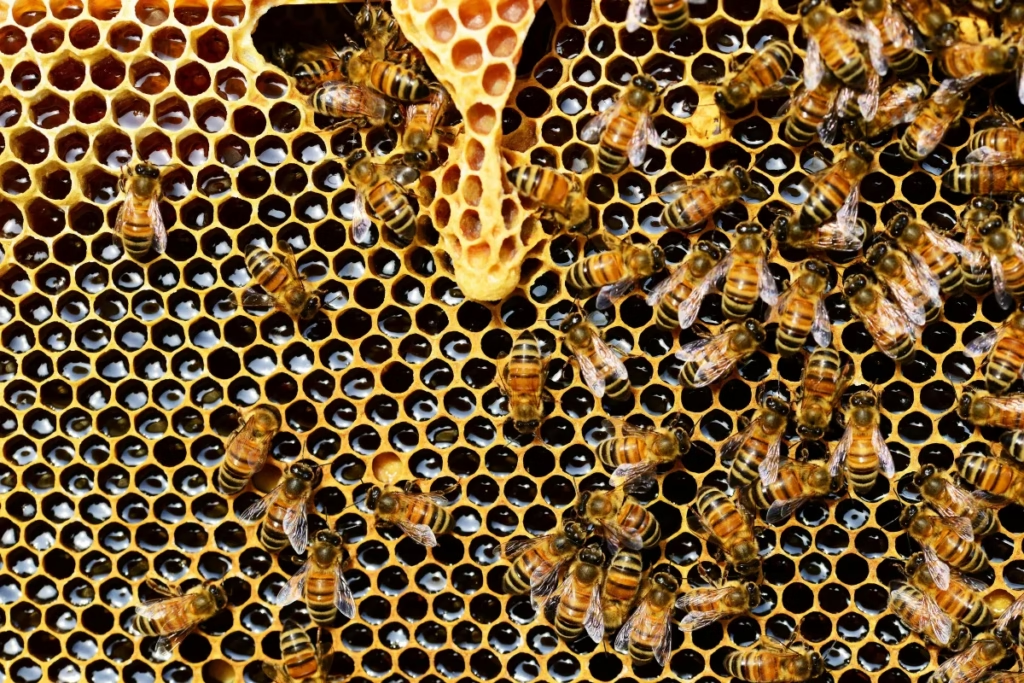
Fun Bee Facts to Blow Your Mind
Okay, let’s take a quick detour for some bee facts that’ll make you go, “Whoa, no way!” These are perfect for impressing your friends or just geeking out:
- Bees Can Nap on Flowers: If a bee gets stuck outside at night, it’ll grip onto a flower petal and sleep there. It’s called “floral roosting,” and it’s adorable.
- Bees Dream (Maybe): Scientists aren’t 100% sure, but when we ask “Do Bees Sleep,” but some think bees might process memories during rest, kinda like how we dream. Think of a bee having a fantasy about the ideal sunflower!
- They Work Hard, Even at Rest: Even when bees seem to sleep, they still regulate their temperature and groom themselves. Multitasking champs!
- Night Owls: Are Bees Certain tropical species of bees, for example, are active at night and rest during the day. Talk about flipping the script.
Bees are just full of surprises, aren’t they?
Why Does Bee Sleep Matter to Us?
You might be thinking, “Cool, Do bees sleep, but why should I care?” Great question! Bee rest isn’t just a cute quirk—it’s a big deal for the world. Here’s why:
- Pollination Power: Bees pollinate about 70% of the crops we eat, like apples, almonds, and avocados. If they’re too tired to do their job, we could see less food on our plates. Rest keeps them sharp for pollinating.
- Hive Health: A well-rested bee colony is a happy, productive colony. If bees don’t rest, the hive can get stressed, leading to weaker colonies or even colony collapse.
- Ecosystem Balance: Bees are a key part of the food chain. Birds, spiders, and other critters rely on them, and plants depend on their pollination. Tired bees = a cranky ecosystem.
- Learning from Bees: Studying bee sleep can teach us about how other animals (and even humans) rest. Plus, it’s a reminder that even the tiniest creatures need a break.
So, next time you wonder “Do Bees Sleep,” remember when you see a bee chilling on a flower—it’s recharging to save the world, one pollination at a time.
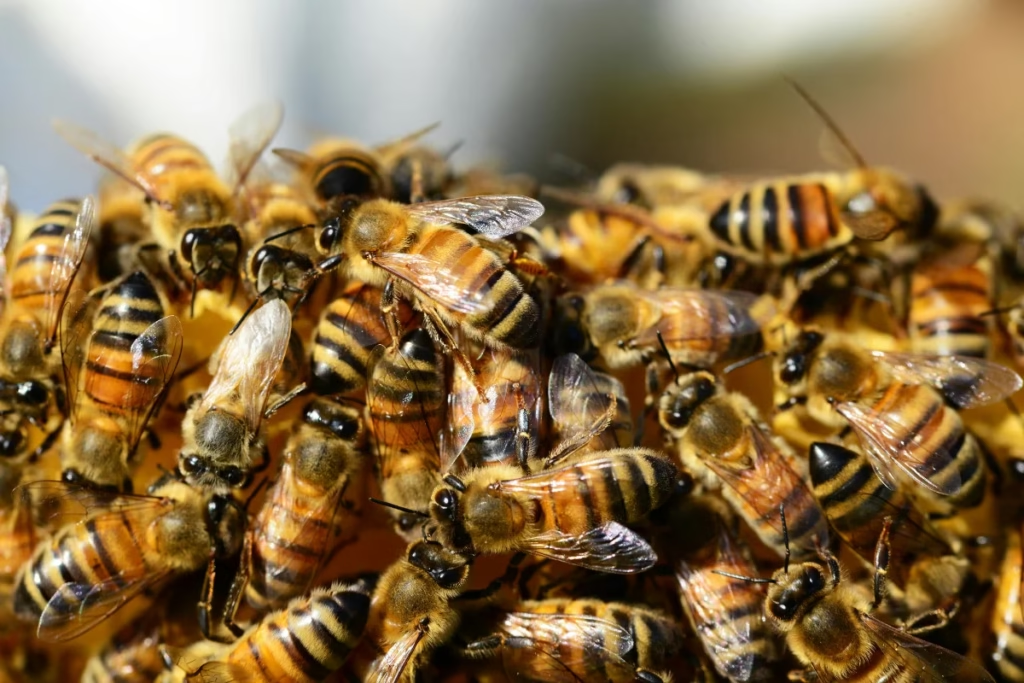
How Can We Help Bees Get Their Rest?
Bees have a tough gig, and humans don’t always make it easier. Pesticides, habitat loss, and climate change can mess with their ability to rest and thrive—which ties right back to the question, Do Bees Sleep? If you’re feeling inspired to help our buzzing buddies, here are some chill ways to support them:
- Plant a Bee Garden: Grow flowers like lavender, sunflowers, or clover that bees love. Make sure they bloom at different times so bees have food (and rest spots) all season.
- Skip the Pesticides: Chemicals like neonicotinoids can mess with bees’ brains, making it harder for them to rest or navigate. Go for natural pest control instead.
- Provide Water: Bees need to hydrate, especially after a long day of flying. For their landing, prepare a shallow dish with water and a few rocks.
- Leave Some Wild Spots: Don’t mow every inch of your yard. Let some wildflowers or grasses grow to give bees places to rest.
- Support Local Beekeepers: Buy honey from local beekeepers who care about their bees’ health. It’s a tasty way to help!
These small steps can make a big difference for bees, helping them get the rest they need to keep buzzing.
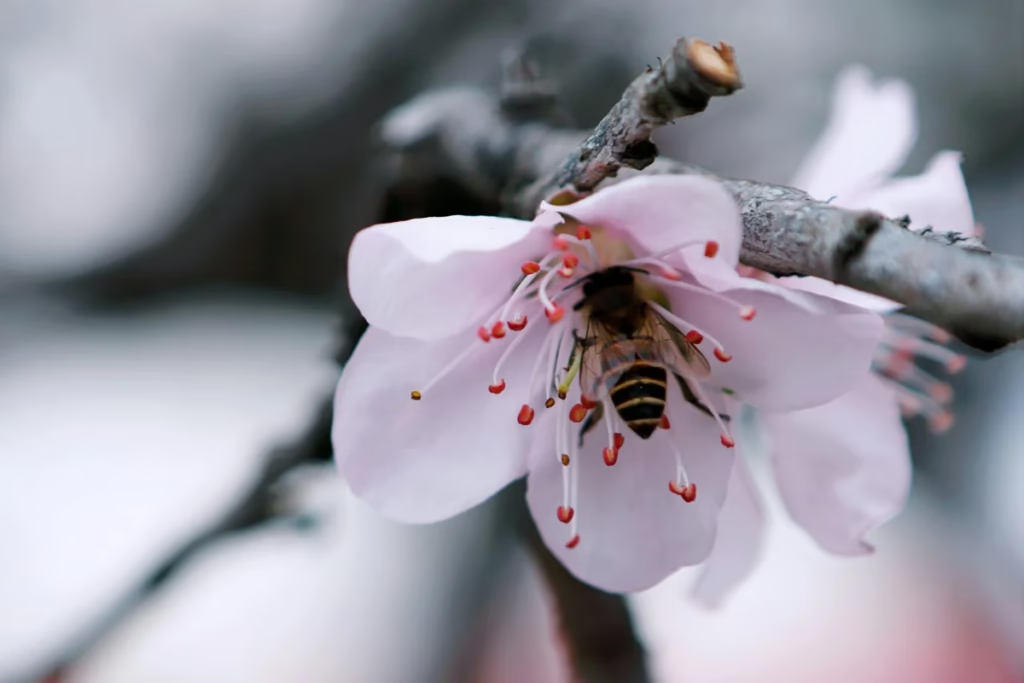
Common Questions About Bee Sleep
I bet you’ve got some questions swirling around, so let’s hit the big ones:
Do bees sleep at night?
Yup, most bees are less active at night, especially honeybees and bumblebees. They’ll rest in the hive or on flowers, following their circadian rhythm.
Can bees get overtired?
Totally. If bees are forced to keep working without breaks (like in lab studies), they get disoriented and less effective. Rest is non-negotiable!
Do queen bees sleep?
While they are busy laying eggs, queens do occasionally take a break. They don’t rest as much as worker bees, though—talk about a tough job.
How can I tell if a bee is sleeping?
Look for a bee that’s super still, with droopy antennae and tucked-in legs. If it’s parked on a flower at dusk, it’s probably catching a nap.
Where to Learn More About Bees and Their Sleep
Wanna geek out even more about bees and discover the answer to Do Bees Sleep? Here are some places to dig deeper:
- Books: Check out The Buzz About Bees by Jürgen Tautz or The Bee: A Natural History by Noah Wilson-Rich. They’re packed with bee facts and are super readable.
- Online Resources: Visit websites like the Xerces Society or the Honeybee Conservancy. They have lots of information on bee behavior and conservation.
- Documentaries: Watch The Pollinators or More Than Honey for a deep dive into the bee world. They’re eye-opening and kinda beautiful.
- Local Beekeeping Associations: Connect with beekeepers in your area for hands-on learning. They might even let you peek inside a hive!
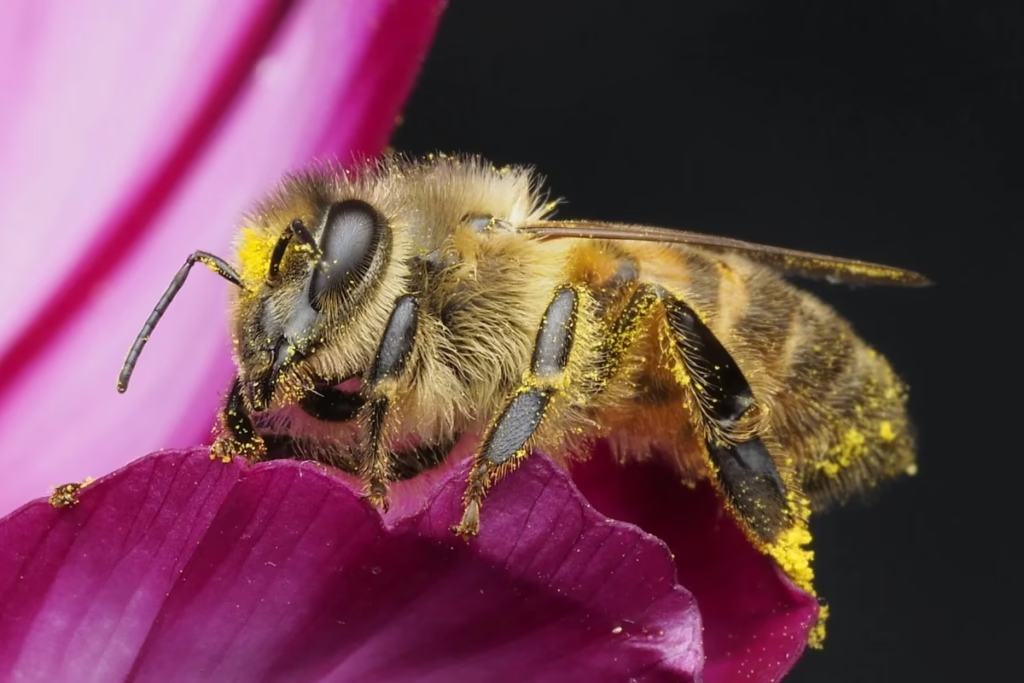
Wrapping It Up
So, there you have it—do bees sleep? Yes, they do, in their own super cool way. In the hive, bees require repose and silence. This helps them stay ready to pollinate, make honey, and save the planet. It’s wild to think that even these tiny, hardworking creatures need a break, just like us. Next time you see a bee chilling on a flower, give it a little nod for keeping the world blooming.
Feeling inspired by learning Do Bees Sleep? Plant flowers, skip the pesticides, and share how great bees are! Got questions or cool bee stories? Leave a comment or message me on social media. Let’s keep the bee love buzzing!
